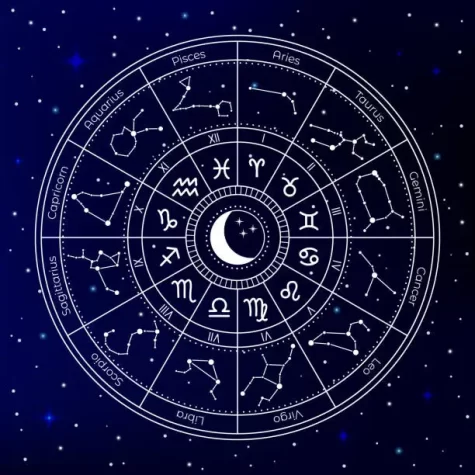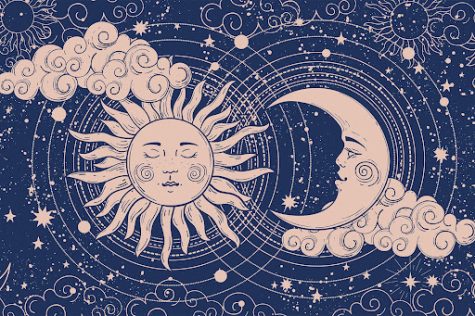Comparing Astrology
Origins of Astrology
Throughout the course of human history, people have looked to the vast and mysterious sky for answers to life’s most important questions. They have observed the movements of celestial bodies to see what they can reveal. Astrology revolves around the idea that the movements of celestial bodies have a divinatory influence on events and people on Earth. It has been practiced around the world for thousands of years, with each society forming their own interpretations of the sky. For example, sailors have used the sky as a compass, while psychics have looked to the sky for spiritual guidance. While astrology is not a traditional science, its cultural and spiritual effects have been and continue to be a significant aspect of human life. These effects are seen throughout some of the most popular and influential branches of astrology: Chinese Astrology, Vedic Astrology, and Western Astrology.
Origins of Zodiac Signs
Zodiac signs, an important aspect of astrology, have origins dating back to the lives of cave people. While the specific origins are unknown, there has been evidence of cave art illustrating spiritual influence on animals and humans. When humans gave in to the spiritual influence, they would have a good hunt. This early evidence of the zodiac’s connection to spirituality serves as the beginning for the modern belief that a person’s zodiac sign influences their behaviors and qualities.
Western Astrology
Western Astrology, popular in the Western world, originated from the Ancient Greeks with influence from neighboring regions, such as the Ancient Egyptians. Compared to Chinese and Vedic astrology, Western astrology originated much later. The 12 Western zodiac signs are known as Aries, Taurus, Gemini, Cancer, Leo, Virgo, Libra, Scorpio, Sagittarius, Capricorn, Aquarius and Pisces. Western astrology is based on the tropical zodiac, meaning the signs are based on the movement of the sun. Western zodiacs have fixed dates based on the astrological calendar, so each zodiac’s dates are always the same, with each sign “assigned” to each month, with some overlapping. These star signs also can be categorized into the four elements, known also as water signs, air signs, fire signs, and earth signs. Under each zodiac sign and its accompanying element, there is the belief that the person with this zodiac sign exhibits certain characteristics and behaviors. For example, Libras are known for being bubbly, extroverted people. Since the dates for each sign do not change to accommodate the Earth’s movements throughout time, the Western Zodiac signs are more spiritual and symbolic than they are astrologically correct
Chinese Astrology
Chinese Astrology, dating back to 5th century BC, also has its own zodiac signs; however, these signs have different symbolism and significance than Western Zodiacs. For example, each Chinese zodiac sign (Rat, Ox, Tiger, Rabbit, Dragon, Snake, Horse, Goat, Monkey, Rooster, Dog, and Pig) is represented by and named after an animal. According to legend, all the animals on earth were called to participate in a race and the order that all the animals finished in is the order of the twelve zodiac animals. Throughout the race, each animal handled the race in a different way and exhibited different qualities. These qualities represent the personalities of those who are that zodiac sign. For example, the winner of the race, the rat, is known for being clever and resourceful after secretly riding on the ox to win the race. One unique aspect of Chinese Astrology, is that unlike Vedic and Western zodiacs, the Chinese zodiac signs are rotated on a yearly basis; each year is represented by one sign/animal: for example, 2021 is the year of the ox–a trustworthy and patient sign. These zodiac signs also have a practical role since you can tell someone’s age by their sign.
Vedic Astrology
Vedic Astrology, like Chinese astrology, dates further back than Western Astrology. Vedic Astrology is founded based on the teachings of the sacred Hindu texts, the Vedas, and provides spiritual guidance for its followers. Due to its religious and spiritual significance, Vedic astrology was used historically as a way to predict and explain life, and leaders would employ someone skilled specifically in Vedic astrology to help guide them through their rule. Vedic Astrology follows Sidereal zodiacs, basing their zodiac signs on fixed stars and lunar movements. While Western astrology follows a consistent calendar based on the sun’s movements, Vedic Astrology is more precise since it accounts for the fact that the path the Earth takes to pass the zodiac constellations changes. Therefore, Vedic zodiac dates have changed allowing for more accuracy while Western zodiacs maintain more symbolic significance. Furthermore, since Vedic astrology is based on the teachings of Hinduism, it is believed that your karma is a part of spiritual growth and is determined by the positioning of celestial bodies.
Whether you are a devout astrologist or a happy-go-lucky horoscope reader, in any part of the world, the sky will always be there to guide you.





